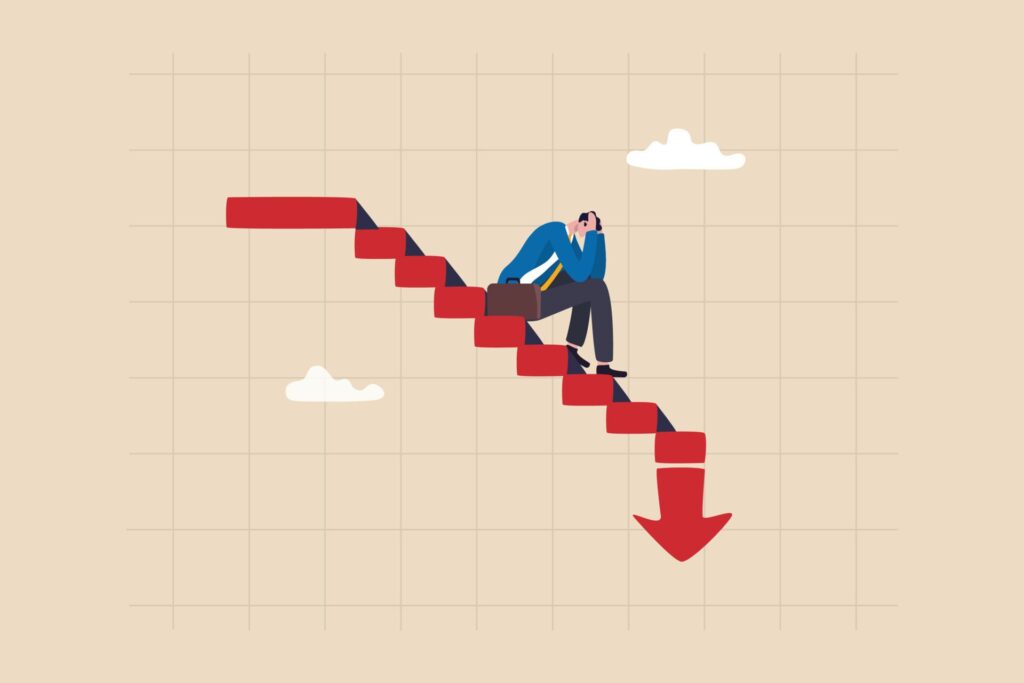
The possibility of an economic recession in the United States looms larger with each passing day. Many economic indicators are pointing towards a downturn, prompting experts to suggest it’s not a matter of ‘if’ but ‘when’ we might face significant challenges. As a senior media editor with years of experience observing economic cycles and public sentiment, I understand the apprehension that this uncertainty can generate among internet users and the general public, especially given the “unprecedented” level of economic and political uncertainty cited by David Rosenberg, founder and president of Rosenberg Research.
This article, informed by the wisdom of Forbes Advisor, finance experts, and seasoned professionals from firms like Financial Samurai, Goldman Sachs, and Credit Suisse, is designed to empower the average American. We aim to provide clear, direct, and implementable financial strategies that will not only help you prepare for a recession but also position you to navigate it successfully and even find opportunities for growth. It’s about building an “all-weather” financial plan, as financial adviser Carl Richards wisely advises, recognizing that “your financial plan should incorporate the idea that there will be recessions in the U.S.”
While economists like David Wessel caution against panic, reminding us that the stock market “has predicted nine of the last five recessions,” the consensus from across the financial spectrum is clear: proactive preparation is paramount. From managing daily finances to securing your professional standing, the time to shore up your financial house is now. George Kamel, a personal finance expert, succinctly states that “recession or not, the best way to protect yourself financially is to live on less than you make, get out of debt (and stay out), and save three to six months of expenses for emergencies.” Let’s delve into the essential first steps to safeguard your financial future, moving from fear to strategy.
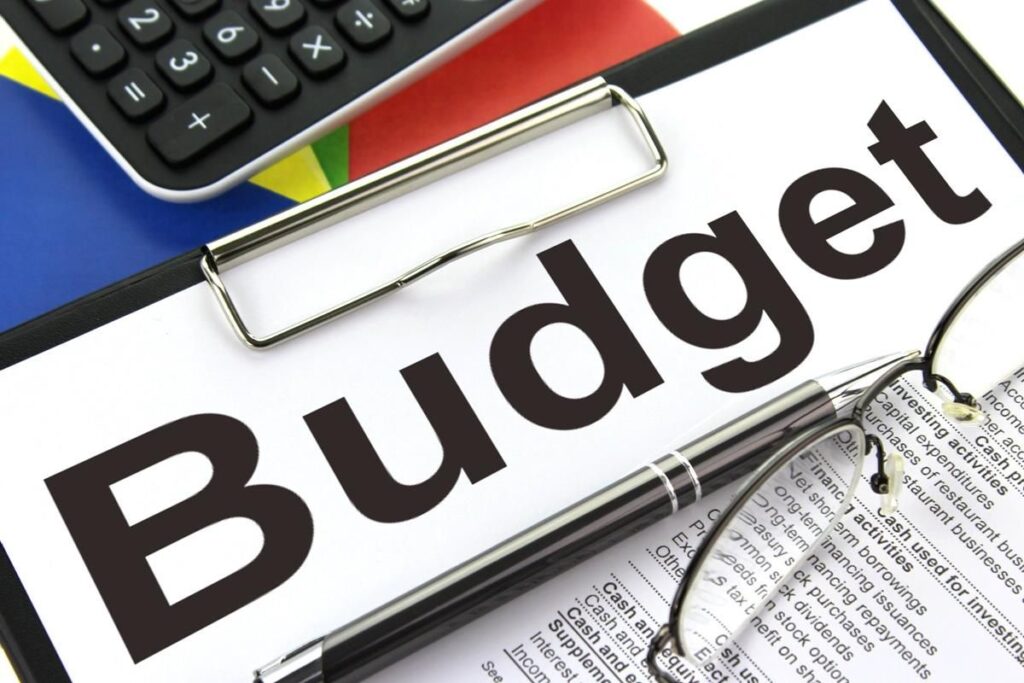
1. Create a Detailed Budget
Having a budget is fundamental, truly “money management 101,” and an indispensable tool for every household, especially when economic clouds gather. As Sara Stanich, founder of financial planning firm Cultivating Wealth, aptly puts it, a budget gives you a “good sense of what it costs to run your life.” It serves as your financial roadmap, illuminating precisely where your money goes each month and where you can make strategic adjustments to bolster your financial health. This awareness is the first step toward gaining control.
The process of budgeting doesn’t have to be daunting or overly complicated, despite what some might imagine. It can be simplified into seven straightforward steps that involve carefully tallying your total income against your total expenditures and then aligning the two to ensure you’re living within or, ideally, below your means. This reconciliation helps identify financial leaks and opportunities for saving, moving you towards a stronger financial position.
There’s a myriad of approaches and tools available for budgeting, from traditional pen-and-paper methods to sophisticated financial software and modern mobile apps. Exploring these options to discover the one that best resonates with your personal style and financial habits is a worthwhile endeavor. The key is to find a system that you can consistently adhere to, making it an integrated part of your financial routine.
A well-structured budget is more than just a tracking tool; it’s a proactive defense mechanism against economic uncertainty. It allows you to clearly identify discretionary spending that can be reduced or eliminated when times get tough, ensuring that essential needs are met first without undue stress. This clarity is crucial for maintaining control and confidence when faced with potential income reductions or unexpected expenses during a recession.
Read more about: Decoding the Digital Underworld: 14 Essential Gadgets for Cyber Security Professionals
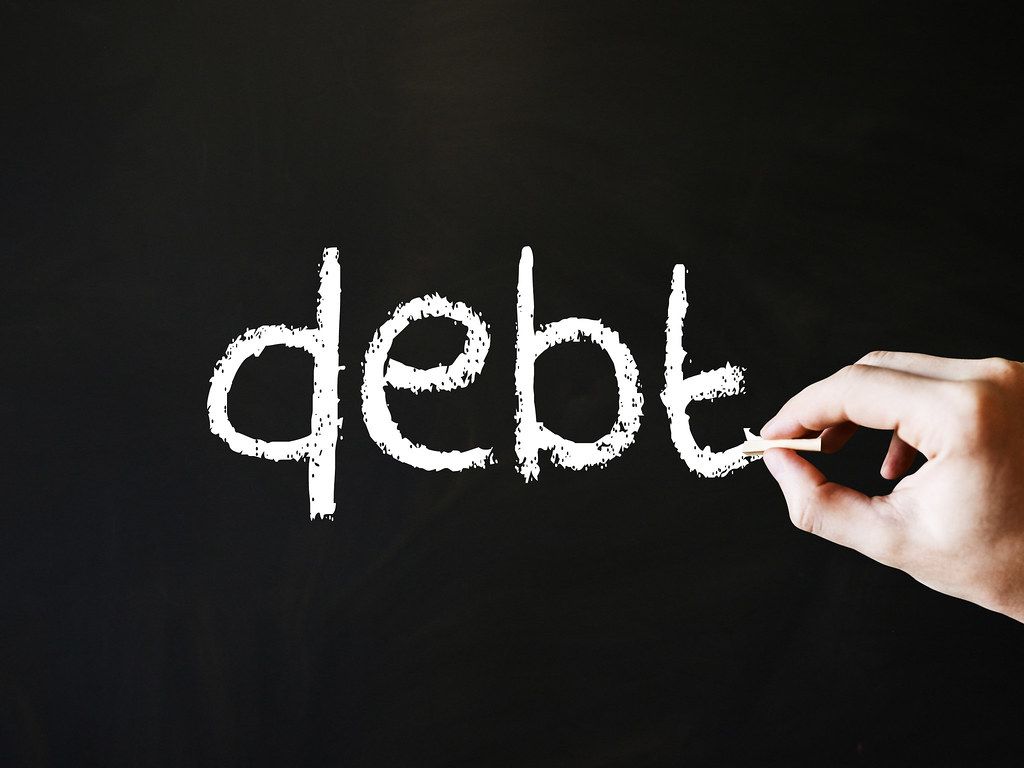
2. Eliminate High-Interest Debt
As interest rates continue their ascent, fueled by tighter monetary policy from the Federal Reserve, the financial burden of debt becomes increasingly heavy. If a significant portion of your income is dedicated to credit card and loan payments, that leaves precious little for building savings or preparing for emergencies. Experts universally agree that aggressively eliminating debt, particularly high-interest debt, is a critical component of how to prepare for a recession.
One highly effective strategy to tackle debt is the “debt snowball method,” where you focus on paying off the smallest debts first, irrespective of interest rate, gaining momentum and psychological wins as each one is cleared. This method helps build confidence and discipline, propelling you towards greater financial freedom. Alternatively, the “debt avalanche” method prioritizes debts with the highest interest rates first, which can save more money in the long run.
While it’s an ideal scenario to be entirely debt-free before a recession strikes, it’s not always a realistic one for everyone. If you find yourself in this position, Sara Stanich, the finance expert, advises that “if you do carry a balance, it’s good to (find) a low-interest, fixed-rate offer.” However, it’s important to note that offers like these are typically reserved for applicants with very good credit, so maintaining a strong credit score is always beneficial.
Consolidating high-interest debt into a fixed-rate loan can offer dual benefits: it may significantly reduce the amount of interest you pay over time, and it provides predictable monthly payments. This stability is invaluable for budgeting during an uncertain economic period, making your financial commitments easier to manage and plan for without the added stress of fluctuating interest costs. Reducing your debt load frees up cash flow, which is essential for building resilience.
Read more about: Your Essential Roadmap to Financial Control: 14 Practical Budgeting Strategies for Savvy Spenders

3. Build a Substantial Emergency Fund
Recessions are frequently characterized by job losses, reduced hours, and unexpected financial challenges, making a robust emergency fund your most critical financial asset. The guidance from financial experts is consistent and emphatic: aim to “keep 6–12 months of living expenses in cash.” This sizable cushion ensures you won’t be forced to sell investments at a loss if markets plummet, offering vital security against unforeseen events like layoffs or sudden medical emergencies.
Amy Mosher, chief people officer at isolved, emphasizes the profound psychological relief this provides, suggesting people aim for “enough savings to cover a couple of payrolls” at a minimum. Such a reserve acts as a crucial buffer, preventing you from dipping into retirement accounts or incurring new debt during a crisis. It allows you to stay grounded and make rational decisions when others might be panicking.
If necessary, Mosher advises even temporarily pausing 401(k) contributions to prioritize building this essential cash reserve. While 401(k)s are vital for long-term growth, having immediate liquidity for emergencies can “relieve a lot of stress” and prevent a cascade of financial problems during a downturn. The peace of mind that comes from knowing you have a financial safety net cannot be overstated during periods of economic instability.
While it’s ideal to enter a recession with a fully funded emergency account, life doesn’t always align with ideal scenarios. Dustin Smith, senior vice president and financial advisor at Wealth Enhancement Group, acknowledges that “you might not have time to build savings” before a downturn. Nevertheless, any amount saved is better than none, and the commitment to building this fund should remain a top priority. Cash, though its value may be eroded by inflation, acts as a king in times of crisis, providing indispensable liquidity and options.
An important point to consider is *where* to keep this cash. “Banking savings is actually competitive again,” Stanich says, referencing high-yield savings accounts paying out 3% interest and CDs with rates of 4%. Even I bonds, with rates adjusted for inflation, have been earning nearly 7%. Moving money from accounts that aren’t earning interest to these higher-yield options is a smart way to grow your balance safely, even if you won’t get rich off them.
Read more about: The Gritty Truth: 14 ‘Dirty’ Jobs That Pay Six Figures and Might Just Change Your Life!
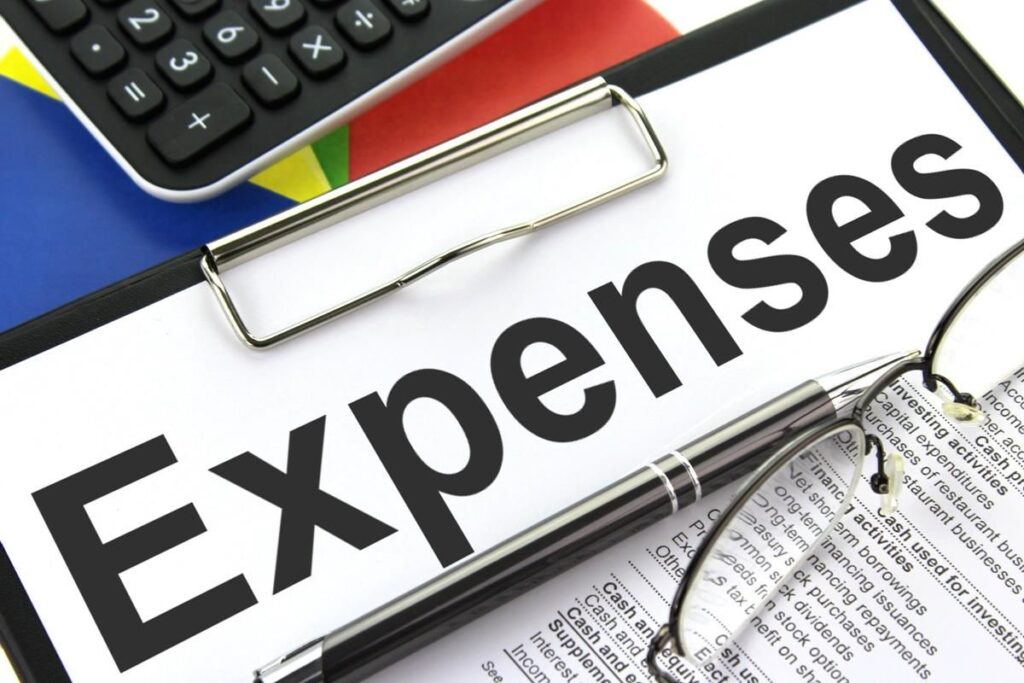
4. Proactively Pare Down Expenses
Effective recession preparedness extends beyond just budgeting; it involves a rigorous examination of all your spending habits to identify areas for significant reduction. Many seemingly small, habitual expenses can accumulate into substantial drains on your finances over time, especially during an economic contraction. The goal is to trim the fat without necessarily affecting your core lifestyle.
Start by looking for straightforward ways to save money, such as opting for less expensive cell phone service providers, bundling your insurance policies (auto, home, umbrella) for potential discounts, or leveraging bill negotiation apps that can often find savings on your behalf. These are often “low-hanging fruit” that require minimal effort but yield tangible financial benefits.
Furthermore, it’s crucial to audit your recurring subscriptions and memberships with a keen eye. Sara Stanich recommends “an audit of credit cards for recurring subscriptions.” Many households inadvertently pay for multiple streaming services, automatic deliveries, or online/offline memberships they rarely use or have forgotten about entirely. Eliminating just a handful of these recurring charges can easily free up $100 or more each month, directing that vital money towards debt reduction or bolstering your savings.
While cutting small, recurring expenses is helpful, Dustin Smith points out that focusing solely on items like a morning latte or an occasional takeout meal only goes so far in generating substantial savings. Instead, he encourages a “rethink big purchases” approach, questioning whether major expenditures like a second home, a new car, or a luxury vacation can be deferred. These larger decisions represent the “equivalent of a lot of cups of coffee” in savings, and postponing them can dramatically boost your cash reserves or reduce long-term financial commitments during uncertain times. Think twice before buying something that will result in ongoing bills.
Lastly, food is often one of the largest discretionary expenses in a household budget, and much of the recent spending growth in this category has been fueled by dining out and takeout. The federal Bureau of Labor Statistics found that American spending on food away from home jumped 27.6% in 2021. Learning to cook at home more often can be significantly cheaper than takeout or restaurant fare, potentially saving hundreds, if not thousands, of dollars during a recession. You can still eat healthy on a budget with the right tips and tricks, turning this area into a major opportunity for savings.
Read more about: Steering Clear: 7 Vehicles Former Owners Beg You Not to Buy
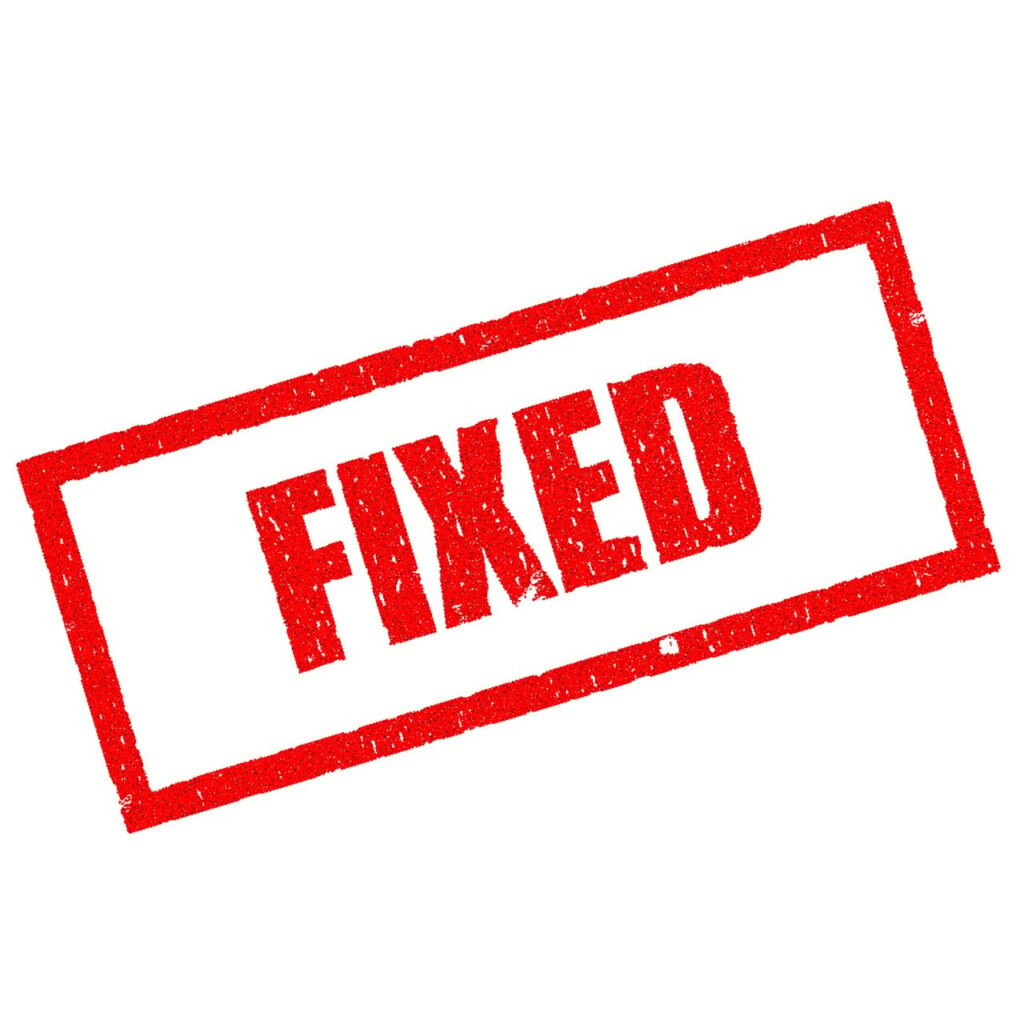
5. Fix and Stock Up on Necessities Now
In an environment where inflation is a persistent concern, securing current prices on essential goods and services is a smart defensive play. This proactive approach involves addressing any looming maintenance or replacement needs around your home and ensuring your vital supplies are well-stocked before costs invariably climb higher. Financial Samurai’s advice to “Fix What You’ve Been Delaying—and Stock Up” is particularly pertinent here, as fixing what’s broken now can save you significantly more later when repairs or replacements become more expensive or difficult to obtain.
For instance, if you own a vehicle, attending to major maintenance tasks now – such as brakes, tires, belts, battery, or filter replacements – is profoundly prudent. Unexpected auto repairs, especially after warranties expire, can swiftly derail a carefully constructed budget during a recession. By addressing these issues proactively, you lock in current prices for parts and labor, and more importantly, prevent a potentially large, unforeseen expense when cash flow might be tight.
Similarly, for homeowners, evaluating the condition of your roof, windows, or major appliances and considering replacements while prices are still relatively manageable can preempt costly emergencies during a recession. Delaying these repairs often leads to more extensive and expensive problems down the line. Weatherizing your home by sealing windows, changing HVAC filters, and clearing gutters not only saves on energy bills immediately but also helps avoid expensive home repairs in the future, as advised in the context.
Beyond physical assets, your health is an invaluable investment that deserves proactive attention. Booking routine checkups or necessary medical procedures now, before potential increases in insurance premiums or deductibles, can safeguard both your well-being and your finances. This strategy aligns with the broader principle of locking in known costs and avoiding unpredictable, higher expenses down the line, thus fortifying your financial resilience against future economic shocks. Stocking up on non-perishable essentials can also provide a buffer against potential price hikes.
Read more about: Your Family’s Ultimate Money Makeover: 14 Essential Budget Categories You Can’t Afford to Ignore!

6. Secure Your Job and Upskill
During an economic contraction, job security becomes paramount, making it an opportune moment to enhance your value within your current role. This isn’t the time for “quiet quitting,” which is the practice of doing just the bare minimum at work; rather, it’s a period to demonstrate exceptional commitment and initiative. Amy Mosher from isolved, a firm providing workforce management solutions, highlights that an employer might favor “a less skilled employee that I know would raise their hand and have a better attitude” over someone merely doing the minimum. Becoming a proactive, reliable team player significantly reduces your risk of being among those laid off.
Building strong, positive relationships with your manager and team members is equally important. Investing time to understand their needs, offering support, and consistently exceeding expectations can make you an indispensable part of the organization. As Financial Samurai wisely suggests, “The $20 you spend taking out your manager might be the best $20 spent ever as you protect yourself from getting laid off.” It makes it considerably harder for management to let go of someone they genuinely see, like, and trust when difficult decisions must be made.
For those considering a career change or seeking greater stability, the current job market, while potentially softening, may still offer opportunities in more recession-resistant sectors. Switching to an industry like healthcare, education, utilities, or essential services, or finding an employer known for long-term stability, is often easier when you are already employed. Positioning yourself in such roles or industries can provide a stronger buffer against economic turbulence.
Ideally, you might even consider strategies to maximize your transition if a layoff seems inevitable. This could involve negotiating a layoff package with severance benefits while simultaneously lining up a new role with a delayed start date. Such a strategic move could effectively “double your income during the transition,” as Financial Samurai advises, providing crucial financial flexibility during uncertain times. Always remember to ask key questions about benefits and recommendations if you are laid off.
Furthermore, now is the time to “upskill.” Invest in learning new skills or refining existing ones that are highly valued in your industry or in recession-proof sectors. Becoming more versatile and knowledgeable makes you a more valuable asset to any employer and increases your marketability should you need to seek new employment. This forward-looking approach to professional development can be a powerful defense against job market instability.
As we continue to build our “all-weather” financial plan, moving from immediate fortifications to long-term growth, the next set of strategies focuses on optimizing our assets and income for sustained stability. These steps are designed not just to help you weather the storm, but to position you to emerge stronger, ready to seize opportunities that may arise during or after an economic downturn. It’s about strategic management that looks beyond the present, fostering enduring financial health and growth.
Read more about: Your 2025 Financial Checklist: 12 Smart Career Moves to Secure Your Future in the Evolving Job Market
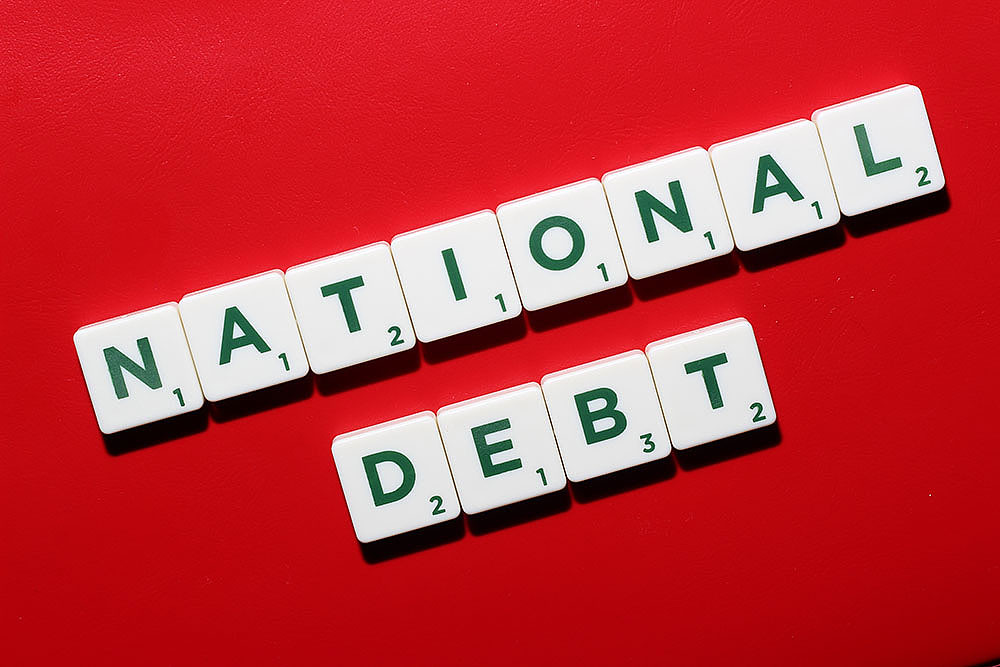
7. Recover Outstanding Personal Debts
In an unpredictable economic climate, the old adage, “neither a borrower nor a lender be,” gains profound relevance. However, if you find yourself in the position of having lent money to friends, family, or even businesses, now is a critical juncture to revisit those outstanding debts. As financial conditions tighten and economic uncertainty rises, the likelihood of defaults unfortunately increases, potentially jeopardizing your ability to recover those funds later.
Collecting these debts might feel uncomfortable, especially when dealing with loved ones, but it’s a necessary step to fortify your own financial position. David Wessel wisely reminds us that financial plans should incorporate the idea of recessions. Losing money you’ve lent can significantly undermine your emergency fund or reduce your capacity to pay down your own high-interest debt, making you more vulnerable to economic shocks.
Approaching this task with clarity and empathy is key. A gentle reminder about the outstanding obligation, coupled with a discussion about a repayment plan, can be more effective than a confrontational stance. Ensuring you have clear documentation of these loans can also be beneficial, providing a foundation for open communication and demonstrating the seriousness of the arrangement.
Prioritizing the recovery of these funds now allows you to re-integrate that capital into your personal financial strategy. Whether it’s bolstering your savings, paying down your own debt, or reallocating to more secure investments, reclaiming what’s rightfully yours is an essential component of stabilizing your financial house before deeper economic challenges potentially take hold.
Read more about: Selena Gomez’s Mental Health Startup Under Fire: Unpaid Employees and Allegations of Mismanagement Spark Financial Crisis

8. Optimize Your Investment Portfolio for a Downturn
While the stock market has a historical tendency to predict many more recessions than actually occur, as David Wessel quips, it’s imperative to manage your investments with a clear, disciplined strategy rather than reacting to headlines. The worst thing you can do is pull money out of the market during a downturn and lock in your losses, as Dustin Smith from Wealth Enhancement Group warns, because you “have to be right twice” – getting out and getting back in. The goal is long-term resilience.
Consider rebalancing your portfolio towards assets that tend to be more resilient or even thrive in an inflationary or recessionary environment. Financial Samurai recommends looking into commodities like oil, agriculture, and metals, as well as real estate, Treasury Inflation-Protected Securities (TIPS), high-quality dividend stocks, gold, and energy stocks. These assets can act as a hedge against inflation and market volatility, offering a degree of stability when traditional growth stocks might falter.
Crucially, defining your investment goals clearly is paramount. Your time horizon profoundly influences your risk tolerance. If you’re investing for retirement decades away, maintaining a consistent, long-term strategy, potentially through dollar-cost averaging, is often the wisest path. However, if you anticipate needing cash within a couple of years for a down payment, tuition, or early retirement, a shift towards more liquid, defensive assets may be prudent. As Carl Richards emphasizes, your financial plan must incorporate the idea that recessions will occur.
Indeed, a downturn, while daunting, can also present alluring opportunities for those prepared to invest strategically. “Use the Downturn to Invest in the Future” by increasing contributions to your 401(k), IRA, Roth IRA, 529 plans, and custodial investment accounts. This dollar-cost averaging approach, investing consistent amounts regardless of market fluctuations, allows you to buy more shares when prices are low, positioning you for significant gains when the economy inevitably recovers. Just ensure your emergency fund is robust before leaning further into investments.
For those who must sell investments during a recession, consider strategies like tax-loss harvesting, as advised by Dustin Smith. This involves selling equities for less than their purchase price to offset future tax bills. However, be vigilant about the wash sale rule, which prohibits repurchasing the same equities shortly after selling them for a loss to qualify for the tax write-off. This advanced tactic requires careful planning and understanding of tax regulations.
Read more about: Navigating Retirement at 61: Is Your $1.65 Million Nest Egg Enough for Financial Freedom?

9. Diversify Your Income Streams
Solely relying on a single paycheck, no matter how secure it seems, introduces a significant vulnerability during an economic recession. The loss of that one income source can swiftly lead to severe financial distress. To build a robust “all-weather” financial plan, cultivating multiple income streams becomes not just a smart strategy but a vital defense against economic uncertainty. Financial Samurai highlights that the typical millionaire often has seven passive income streams, setting an aspirational benchmark for long-term resilience.
Consider cultivating passive income sources that can continue to generate revenue even if your primary employment is affected. Examples include rental income from properties, stock dividends from well-chosen equities, or interest income from bonds. While these require initial capital or investment, they offer a steady trickle of funds that can provide a crucial buffer during leaner times, reducing your reliance on active employment.
Beyond passive income, explore active alternative income streams through freelancing, consulting, or starting a side business. The gig economy, facilitated by apps like DoorDash or TaskRabbit, offers flexible opportunities for delivering goods or providing handy services on your own schedule. Even sharing expertise through lessons or online courses can generate supplementary income, transforming a hobby or skill into a valuable financial asset.
When exploring these options, strategically focus on recession-resistant sectors. Industries such as healthcare, education, utilities, and other essential services tend to maintain demand even during economic contractions, making them more stable avenues for additional income. Positioning yourself in these areas, either through full-time employment or side ventures, can provide a stronger buffer against the widespread cutbacks seen in discretionary spending sectors. Building these streams proactively, before a recession truly hits, is a far more effective approach.
Read more about: Inside Roger Federer’s Billion-Dollar Blueprint: Unpacking The Strategic Deals That Made A Tennis Legend A Wealth Titan

10.Strategically Manage Housing Expenses
Your housing costs, whether rent or mortgage, typically represent the largest portion of your monthly budget, making it a crucial area for strategic management during a recession. While many experts agree that a recession doesn’t automatically equate to a housing crisis akin to 2008, rash decisions about moving or downsizing can inadvertently lead to higher expenses, especially with fluctuating mortgage rates. Sara Stanich warns that downsizing might result in a smaller house but a larger mortgage payment, especially for retirees.
For homeowners, proactively reducing your Private Mortgage Insurance (PMI) can yield significant monthly savings. If your down payment was less than 20%, you likely have PMI, which adds hundreds of dollars to your payment. Lenders are required to cancel PMI once you reach 20% equity in your home. Thanks to recent housing price increases, you might have achieved this equity level without extra payments; a professional appraisal could confirm this, and the cost of the appraisal might be well worth the ongoing savings.
Beyond mortgage payments, reducing your energy consumption is a universally beneficial strategy. Simple weatherization steps, such as sealing windows, regularly changing HVAC filters, and clearing gutters, not only reduce your monthly energy bills but also prevent costly home repairs in the future, as outlined in the context. If you anticipate difficulty covering energy costs, researching government, utility company, or nonprofit assistance programs now can provide a vital safety net.
For those who are tenants, being a thoughtful and proactive occupant can help secure your current housing situation. Addressing any outstanding issues in your lease agreement or maintaining open communication with your landlord can help avoid reasons for rent increases beyond market necessities. For landlords, a proactive approach involves maintaining open lines of communication with tenants, making strategic rent adjustments, and prioritizing occupancy over simply maximizing rent. These measures foster stability for both parties during uncertain economic periods.
Read more about: Your Family’s Ultimate Money Makeover: 14 Essential Budget Categories You Can’t Afford to Ignore!

11. Adapt Your Retirement Strategy
For those nearing or in retirement, an economic recession presents unique challenges that demand a flexible and well-considered strategy. “Retiring in a down market isn’t so wonderful,” as Dustin Smith cautions. Making withdrawals from your retirement funds early in retirement, especially during a market downturn, can trigger a “sequence of returns risk,” potentially depleting your savings much faster and leaving you vulnerable to financial shortfalls later in life. Postponing retirement for another year or two, if feasible, can allow your portfolio time to recover and rebuild before you begin drawing on it.
If delaying retirement isn’t an option, strategically consider starting Social Security benefits early, typically at age 62, if you are eligible. As Smith suggests, “Starting Social Security early might reduce pressure on investments.” These monthly payments can help cover essential bills, thereby reducing the amount you need to withdraw from your investment accounts each month. It’s crucial, however, to understand that taking benefits before your full retirement age (67 for most) will result in a permanently reduced monthly benefit. Evaluate this trade-off carefully.
Moreover, reassess your retirement withdrawal strategy. The traditional 4% rule, often cited as a safe withdrawal rate, may not hold up during a recession or periods of stagflation when asset prices are under pressure and inflation remains elevated. Consider lowering your safe withdrawal rate to preserve your capital. To bridge any income gaps, consider taking on light consulting work or part-time income. As the economy and markets stabilize, you can gradually adjust your withdrawal rate upwards again.
Interestingly, the context also presents a nuanced perspective: if your finances are exceptionally solid and you are genuinely ready to leave the workforce, retiring during a recession could, counter-intuitively, make sense. When the job market is tight and promotional opportunities are scarce, the “opportunity cost” of quitting is lower. If your wealth can comfortably support your lifestyle, retiring during a downturn allows your investments to potentially rebound during the subsequent recovery, providing even more financial breathing room in your later years. This, however, requires rigorous financial planning and a deep understanding of your personal situation.
Read more about: The King’s Ultimate Rebuttal: One Mind-Blowing LeBron James Stat That Absolutely Silences Every Single Hater
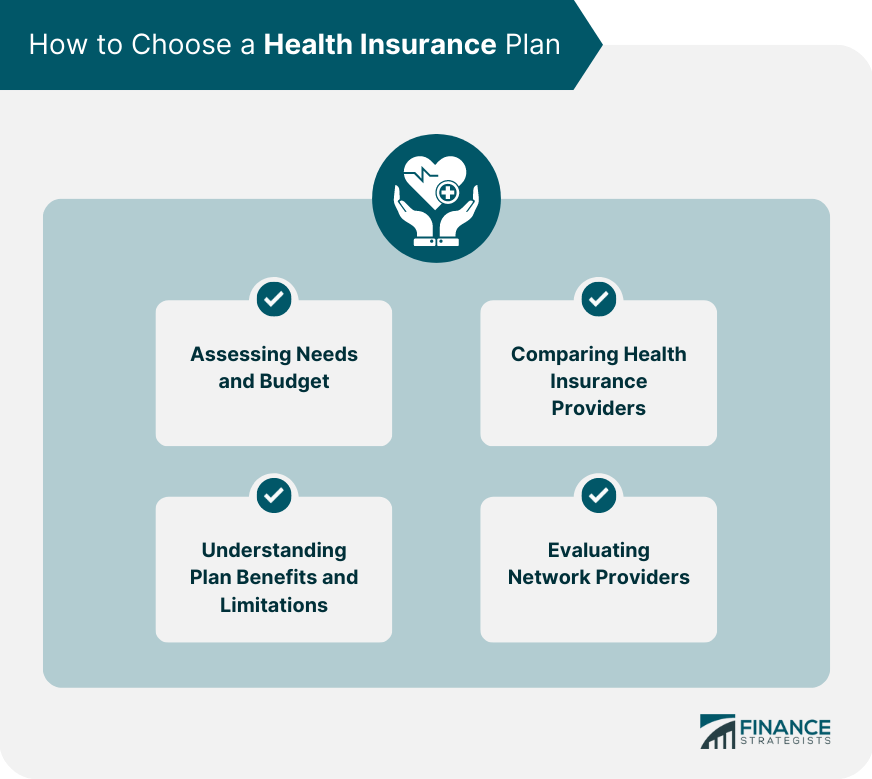
12. Prioritize Your Health and Insurance Coverage
While often overlooked in purely financial discussions, your health is an invaluable asset that directly impacts your financial well-being, especially during a recession. As Amy Mosher rightly states, “You really have to take care of yourself.” Getting sick can lead to lost income from missed workdays and can incur substantial medical bills, both of which can severely strain an already tight budget. Proactive attention to your wellness and a thorough review of your insurance coverage are critical defensive measures.
Each year, take full advantage of your open enrollment period to meticulously review and adjust your health insurance coverage. If you receive insurance through your employer, consult your human resources department for specific dates and options. For those on federal marketplace plans, open enrollment typically occurs in the fall. Mosher emphasizes that reviewing benefits can make a “material difference,” particularly for married couples who should coordinate their plans to avoid costly duplicate coverages or to cancel any voluntary benefits they no longer need, such as pet insurance for a departed pet.
Consider utilizing tax-advantaged accounts like Health Savings Accounts (HSAs) or Flexible Spending Accounts (FSAs) to pay for medical expenses with pre-tax dollars. HSAs, typically paired with high-deductible health plans, offer a triple tax advantage (tax-deductible contributions, tax-free growth, tax-free withdrawals for qualified medical expenses) and can be a powerful tool for long-term health savings. FSAs, including those for dependent care, also allow you to save money on qualifying expenses. Consult a tax professional to determine the best option for your specific circumstances, especially when weighing an FSA against the child and dependent care tax credit.
Finally, make wellness a non-negotiable priority to manage the inherent stress of economic uncertainty. Many employers offer underutilized wellness programs designed to support physical and mental health. If these aren’t available, simple self-care practices can provide significant relief: regular walks, journaling, connecting with friends, or engaging in hobbies can help you stay grounded. As the context advises, taking care of yourself is paramount, safeguarding both your physical health and your ability to navigate financial challenges with a clear mind.
Recessions, and especially the specter of stagflation, invariably test the resilience of even the most meticulous financial planners. Yet, they are not merely periods of challenge; they are also profound opportunities for those who maintain a level head and adopt a proactive, strategic approach. The key lies in shifting your mindset from reactive fear to deliberate strategy, focusing on building sustainable systems that protect and grow your wealth over time.
Read more about: Unveiling the Safest Luxury Sedans of 2025: A Deep Dive into 13 Models with Standard Advanced Safety Features
By diligently optimizing your investments, diversifying your income, controlling major expenses like housing, adapting retirement plans, and safeguarding your health, you build a comprehensive financial fortress. Recessions are temporary, typically lasting between six months to two years. Your commitment to these principles ensures that when confidence falters among others, you remain focused, ready not just to survive but to emerge on the other side stronger, more financially robust, and poised for lasting growth. This isn’t just about preparing for a downturn; it’s about building an enduring financial legacy.



